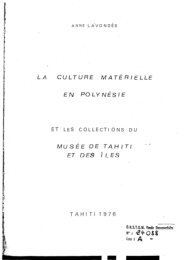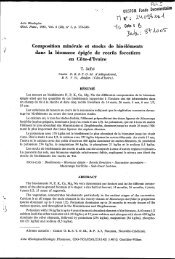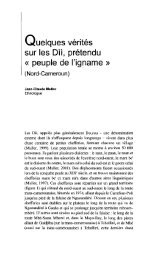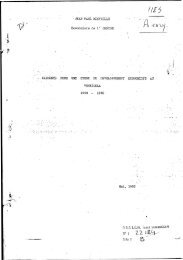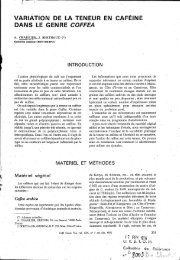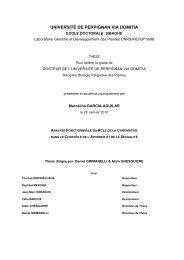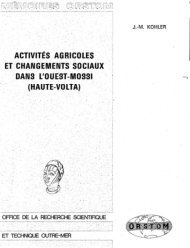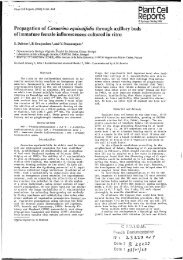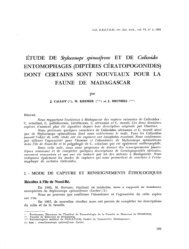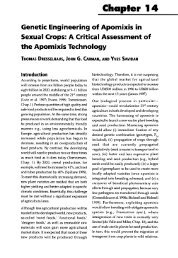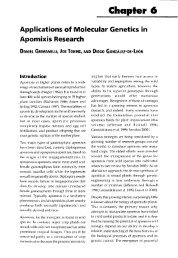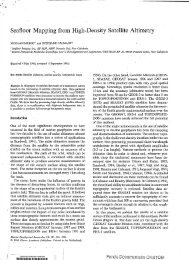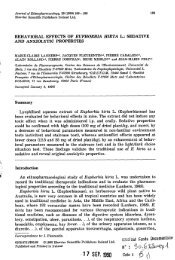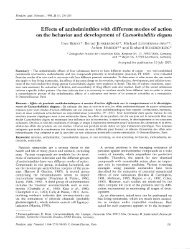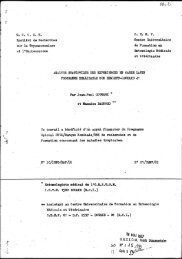A study case on coffee (Coffea arabica): Limu Coffe - IRD
A study case on coffee (Coffea arabica): Limu Coffe - IRD
A study case on coffee (Coffea arabica): Limu Coffe - IRD
Create successful ePaper yourself
Turn your PDF publications into a flip-book with our unique Google optimized e-Paper software.
Each <strong>coffee</strong> producing woreda presents differences in coordinati<strong>on</strong> between its local<br />
producti<strong>on</strong> and marketing actors but a three-poled organizati<strong>on</strong> seems recurrent: the villagers<br />
themselves, the government extensi<strong>on</strong>s services and the local traders (Save the children UK,<br />
2003). That means small-scale farmers, WARDO (Woreda Agriculture and Rural<br />
Development Office) and akhrabies. This organizati<strong>on</strong> c<strong>on</strong>stitutes the main supply channel<br />
the bulk of <strong>coffee</strong> producti<strong>on</strong> takes. However the <strong>on</strong>e observing has to be careful into not<br />
generalizing because, depending <strong>on</strong> the woreda, service cooperatives are more or less active.<br />
And in <strong>Limu</strong> Kosa these <strong>on</strong>es are not so influencing <strong>coffee</strong> farmers’ activities. They are<br />
generally not active but initiatives are leading a new drive. Ones of which are <strong>Limu</strong> Inara<br />
Farmers Multi-Purpose Cooperative Uni<strong>on</strong> goals through linking farmers within market<br />
groups with export markets, and the Babo and Ambuye cooperatives which are members of<br />
the dynamic Oromia <strong>Coffe</strong>e Farmers Cooperative Uni<strong>on</strong>. Except these two channels, state<br />
farms and investors make up a third way they lead independently. Indeed, they own or rent all<br />
producti<strong>on</strong> means, from pulperies to trucks, linking them directly to central and export<br />
markets. They <strong>on</strong>ly collaborate with the WARDO for quality and administrative purposes.<br />
The WARDO acts <strong>on</strong> <strong>coffee</strong> producers through model farmers who are innovati<strong>on</strong><br />
vectors, the link between WARDO and other farmers; through farmer training centres (FTC)<br />
and declining dem<strong>on</strong>strati<strong>on</strong> sites they oversee; and through their development agents (DA).<br />
Each “three farmers’ associati<strong>on</strong>s” has <strong>on</strong>e supervisor who oversees nine DA (three DA per<br />
kebele). Development agents are divided into animal producti<strong>on</strong>, plant producti<strong>on</strong> and<br />
resources c<strong>on</strong>servati<strong>on</strong> agents. The last two specialized agents act <strong>on</strong> <strong>coffee</strong> producti<strong>on</strong>, and<br />
live in the producti<strong>on</strong> site. A direct influence is the sale to farmers of seeds or seedlings<br />
grown in the six state nurseries of the district: in a state nursery, located eight km at south of<br />
Genet, 142,700 seeds (38 kg) of highland (>1900 masl) 74-165 variety were planted in<br />
April/May 2009. Once the seedlings reached a three-pairs-of-leaves stage between June and<br />
August 2009, they will be picked and transplanted in <strong>coffee</strong> fields. Then farmers purchase it<br />
0.16 birr per seedling, while seeds cost is 35 birr per kg (state nursery manager, 29 th June<br />
2009).<br />
102



